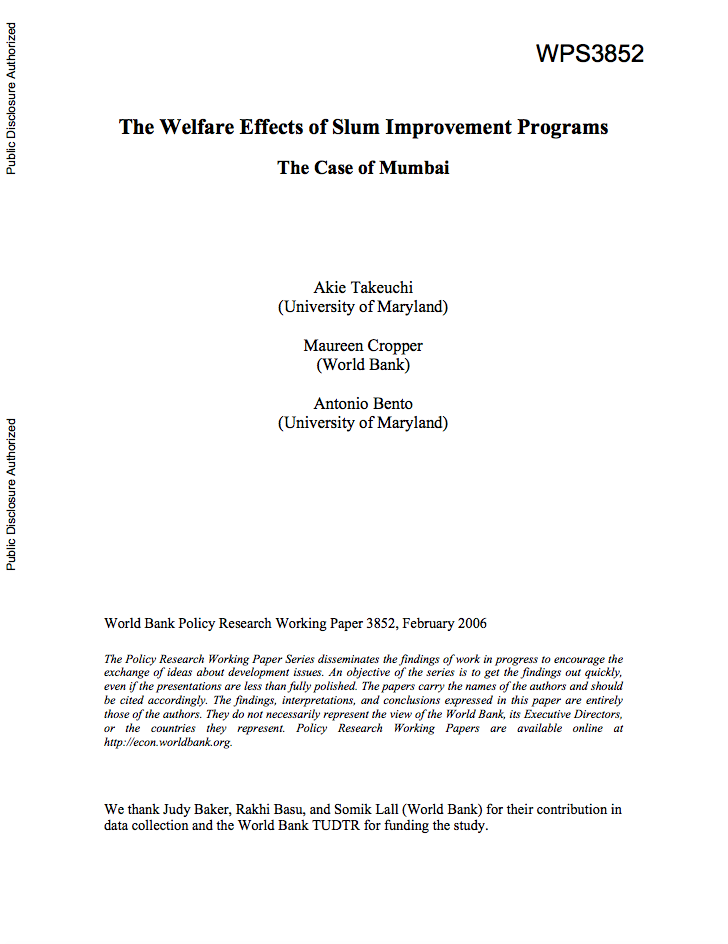The World Bank is a vital source of financial and technical assistance to developing countries around the world. We are not a bank in the ordinary sense but a unique partnership to reduce poverty and support development. The World Bank Group has two ambitious goals: End extreme poverty within a generation and boost shared prosperity.
- To end extreme poverty, the Bank's goal is to decrease the percentage of people living on less than $1.25 a day to no more than 3% by 2030.
- To promote shared prosperity, the goal is to promote income growth of the bottom 40% of the population in each country.
The World Bank Group comprises five institutions managed by their member countries.
The World Bank Group and Land: Working to protect the rights of existing land users and to help secure benefits for smallholder farmers
The World Bank (IBRD and IDA) interacts primarily with governments to increase agricultural productivity, strengthen land tenure policies and improve land governance. More than 90% of the World Bank’s agriculture portfolio focuses on the productivity and access to markets by small holder farmers. Ten percent of our projects focus on the governance of land tenure.
Similarly, investments by the International Finance Corporation (IFC), the World Bank Group’s private sector arm, including those in larger scale enterprises, overwhelmingly support smallholder farmers through improved access to finance, inputs and markets, and as direct suppliers. IFC invests in environmentally and socially sustainable private enterprises in all parts of the value chain (inputs such as irrigation and fertilizers, primary production, processing, transport and storage, traders, and risk management facilities including weather/crop insurance, warehouse financing, etc
For more information, visit the World Bank Group and land and food security (https://www.worldbank.org/en/topic/agriculture/brief/land-and-food-security1
Resources
Displaying 3621 - 3625 of 4906The Welfare Effects of Slum Improvement Programs : The Case of Mumbai
The authors compare the welfare effects of in situ slum upgrading programs with programs that provide slum dwellers with better housing in a new location. Evaluating the welfare effects of slum upgrading and resettlement programs requires estimating models of residential location choice, in which households trade off commuting costs against the cost and attributes of the housing they consume, including neighborhood attributes. The authors accomplish this using data for 5,000 households in Mumbai, a city in which 40 percent of the population live in slums.
Ghana - Meeting the Challenge of Accelerated and Shared Growth : Country Economic Memorandum, Volume 3. Background papers
Ghana has done increasingly well in
recent years. This report has analyzed these issues in
considerable depth, making it a prime reference on
Ghana's growth and poverty experience and current
policy challenges. The Ghana Country Economic Memorandum
(CEM) report presented in these three volumes brings
together detailed, relevant analyses of Ghana's growth
and the Millennium Development Goals (MDGs), poverty
India - Jharkhand : Addressing the Challenges of Inclusive Development
This study on Jharkhand in India
addresses the challenges faced by that new state of India
(founded in November 2000) to surmount adverse initial
conditions of low average income, very high incidence of
poverty, and little social development. In addition, initial
health and education indicators in Jharkhand were also
markedly unfavorable in comparison to both the all-India
average and the major Indian states. The paper points out
Thailand : Northeast Economic Development Report
This report is about balanced economic development in the Northeast of Thailand. It is about growth and poverty reduction, cities and villages, enterprises and workers, skills and education, infrastructure and trade, and rice and silk. Northeast economic development is only part of Thailand's development challenge, but it is among the most important. We look back at how the Northeast has fared in terms of growth, poverty reduction and social capital over the last decades relative to other regions in Thailand.
Nepal - Country Environmental Analysis : Strengthening Institutions and Management Systems for Enhanced Environmental Governance
The main objective of the Country
Environmental Analysis (CEA) in Nepal is to identify
opportunities for enhancing the overall performance of
select environmental management systems through improvements
in the effectiveness of institutions, policies, and
processes. CEA has been built upon the following three
primary study components: (a) an examination of the
environmental issues associated with infrastructure







